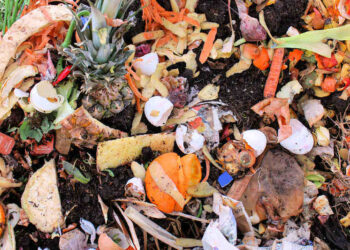The California Department of Resources Recycling and Recovery has pushed back the effective date for a state law on labeling compostable packaging materials to mid-2027.
Under AB 1201, a product cannot be labeled “compostable” or “home compostable,” “biodegradable,” “degradable” or “decomposable” unless it is an allowable agricultural organic input under the requirements of the U.S. Department of Agriculture National Organic Program. This requirement was set to begin on Jan. 1, 2026, but now will take effect June 30, 2027.
In a June 11 letter, CalRecycle informed the Biodegradable Products Institute it was granting an extension: “The extension applies to products that contain synthetic substances that otherwise satisfy all requirements for lawfully being labeled ‘compostable.'” In effect, the extension allows plastics that are currently labeled as biodegradable and compostable to continue bearing those labels, even though they’re not considered allowable organic inputs.
Advocates for the extension had argued the federal definition of “allowable organic input” is outdated and may change in the near future. Opponents of the extension, however, included compost facility operators who expressed frustration at the compostable-labeled plastics entering their facilities, that they aren’t equipped to handle.
Previously, CalRecycle had declined BPI’s July 2024 request for a five-year extension, according to the organization’s June 12 letter to members that was viewed by Resource Recycling.
The U.S. Department of Agriculture determines allowable inputs for organic agriculture under its National Organic Program. In April, Alex Truelove, legislation and advocacy manager at BPI, told Resource Recycling that the guidelines had not kept up with product developments over the past 25 years.
The BPI member letter went on to say: “This marks a milestone in BPI’s advocacy efforts, which started five years ago when AB 1201 was still a bill and we lobbied for amendments to remove the NOP language, and were able to get the 5 years built into the law. BPI then developed a highly complex petition and filed it with USDA, pushing to get it attention at National Organic Standards Board meetings.”
In a June 12 emailed statement, the California Retailers Association thanked Gov. Gavin Newsom and CalRecycle Director Zoe Heller for the extension: “Their action ensures consumers and retailers can continue using compostable bags for produce and meat — avoiding unnecessary costs, supply chain disruptions and limited options at checkout.
“This extension preserves a critical compliance pathway under SB 54, supporting both affordability and environmental progress,” the CRA added. The organization represents the state’s grocery and big-box retailers.
However, BPI said in its member letter, “We know that for some BPI Members this extension is too little too late, as they’ve already made tough decisions to change products and packaging to comply with AB 1201. And delaying the date by 18 months does not provide the regulatory certainty that companies need considering the timelines involved with supply chains, much less investments to develop and bring new products to market.”
The organization added in a statement on LinkedIn: “The work is far from over, as this delay doesn’t provide much additional runway for companies that need regulatory certainty to develop compostable packaging solutions, which can take years. We’ll continue working both in California and at USDA to get a permanent fix.”






























